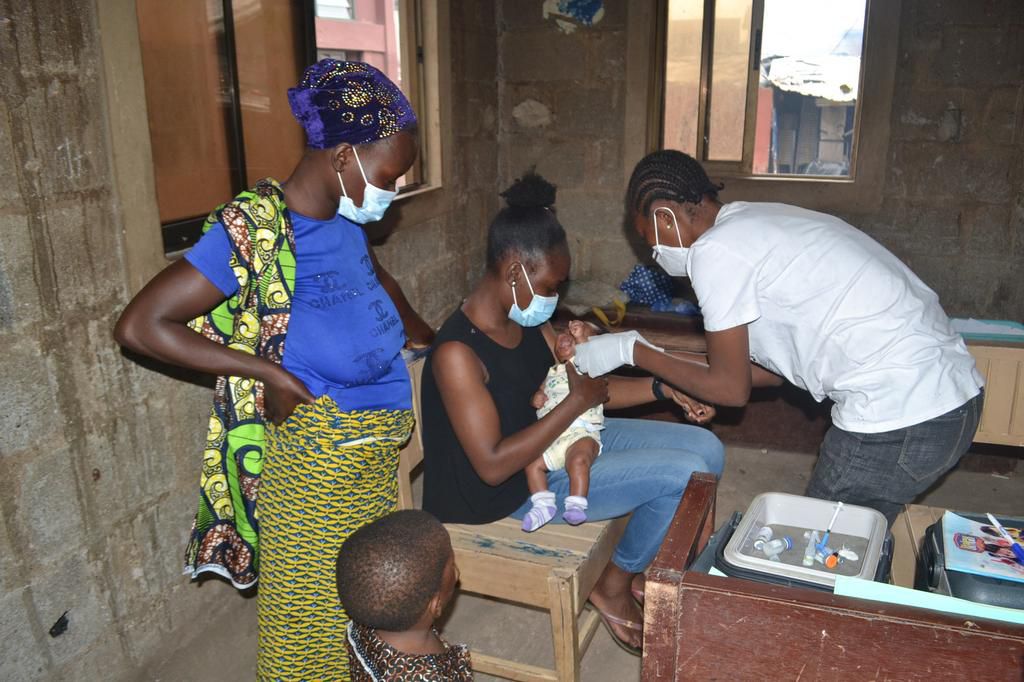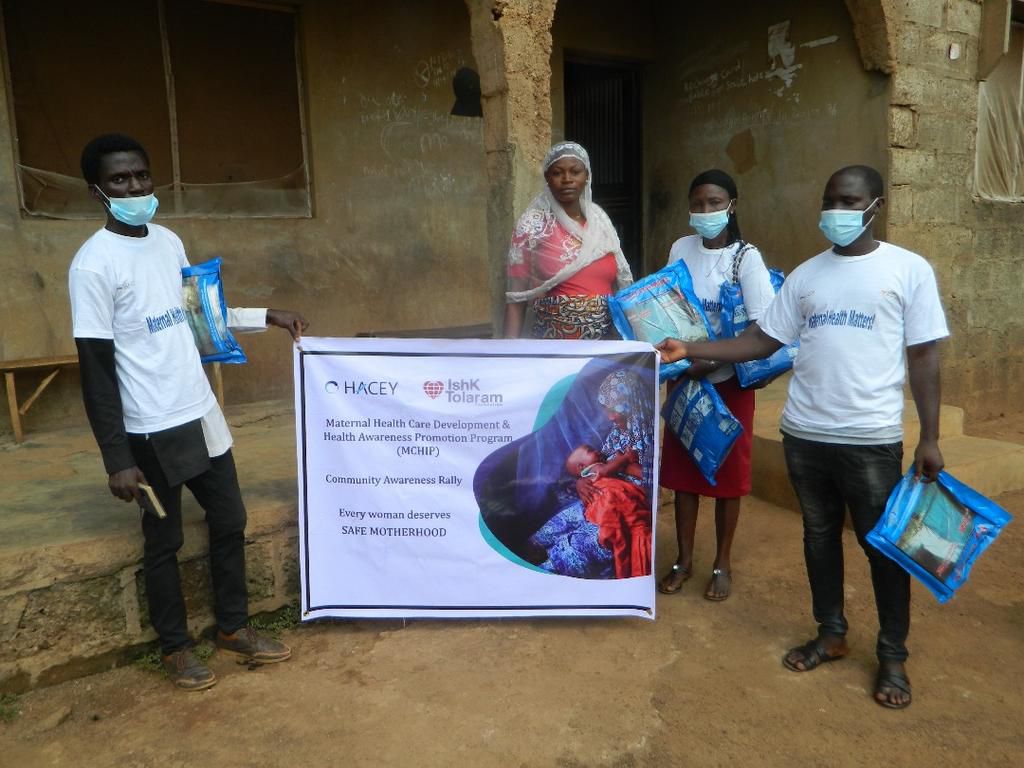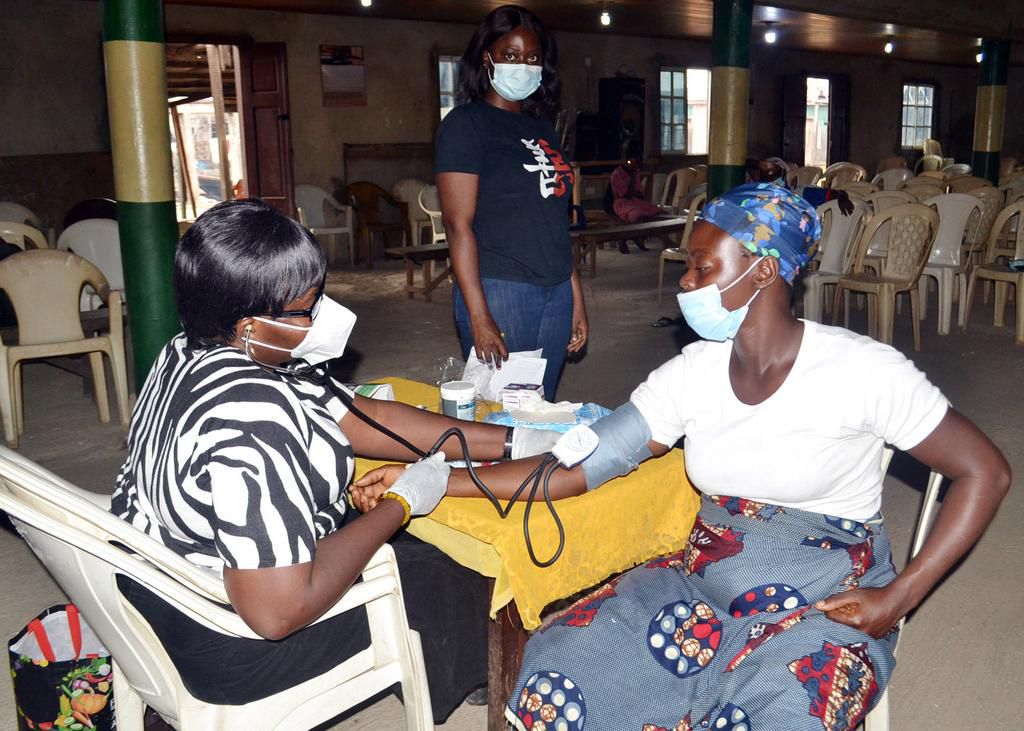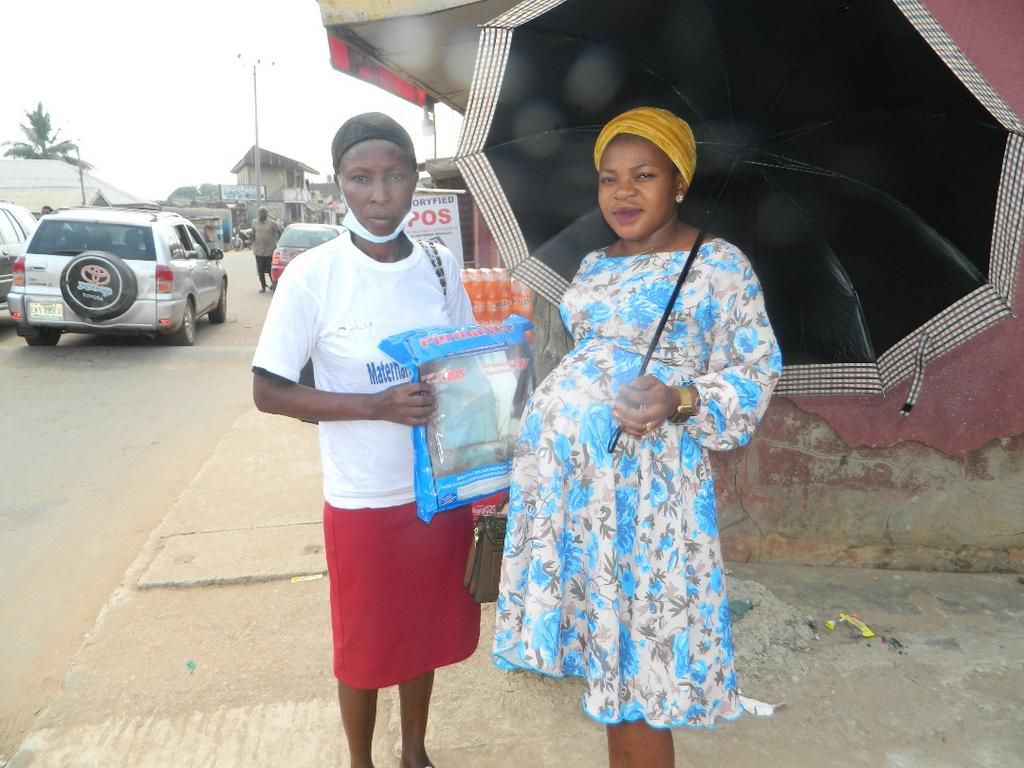Improving maternal healthcare in rural Nigeria with free drugs and birthing kits
)
In many Nigerian rural communities, maternal healthcare and childbirth delivery procedures are largely crude and unhygienic.
The dearth of quality maternal healthcare facilities to cater to the needs of pregnant women, mothers, and their newborns in these areas is partly responsible for the high rate of child and maternal mortality in the country.
According to the Fragile States Index, lack of access to quality healthcare services is one of the main reasons Nigeria is among the 15 countries where complications in pregnancy and maternal mortality are very high.
In its 2017 reports, the World Health Organization (WHO) stated that Nigeria accounts for 14 percent of global maternal mortality, with a total of 814 maternal deaths per 100,000 births.
The health agency has also specifically established that a Nigerian woman has a 1 in 22-lifetime risk of dying during pregnancy, childbirth, or postpartum/post-abortion; whereas in developed countries, the lifetime risk is 1 in 4900.
Unfortunately, the prevalence of maternity challenge in rural communities is worsened by the low socio-economic status of women living in such areas.

Nigerians, especially women in rural communities are economically at a disadvantage. Statistics has shown that 86 million Nigerians live in extreme poverty, with 52 percent of the estimated population living in rural communities.
What this means is that, even if there are working health facilities in rural settings, the bulk of the population of the areas will have no means to afford healthcare services, and for women in such communities, they’ll have no choice but to submit themselves to the traditional delivery practices that may bring them more problems than solutions.
Addressing the challenge
Maternal healthcare remains a serious issue in Nigeria, but to address this problem, Hacey Health Initiative, through its Project Agbebi, and Alabiyamo Maternal and Child Healthcare Foundation are making efforts to prioritize and improve maternal health in rural communities.

In these settings, many women have had to deal with the harsh reality of nurturing pregnancies and delivering their babies in the crudest ways.
But these non-governmental organizations have a mission to save lives by enlightening rural dwellers and providing drugs as well as birthing kits for pregnant women and new mothers at no cost.
“For us, Project Agbebi is a community-based maternal health intervention that is targeted at giving access to quality maternal healthcare for both mother and child especially in underserved communities. This intervention is, therefore, aimed at reducing the prevalence of maternal mortality in those communities by providing them with quality maternal health services,” the intervention’s programme officer, Opeoluwa Ademola told Pulse.
For Alabiamo foundation, the mission is not only to ‘give free antenatal care and immunization to pregnant women and their babies in out-of-reach communities,’ Rebecca Afolayan, the founder, also said the foundation is out to enlighten rural communities on family planning and the use of contraceptives.
Strategy
The high prevalence of maternal mortality in rural communities is also attributed to infections and malaria. Malaria in pregnancy can lead to a number of complications, ranging from anaemia, low birth weight, miscarriages, placental parasitemia, neonatal mortality and death.
According to the World Malaria Report, the disease accounts for 11% of maternal deaths in Nigeria.
However, to prevent malaria and infections, the NGOs provide women in rural settings with long-lasting treated nets, anti-malaria drugs, tetanus vaccine and birthing kits containing sterilized blades, gloves, marking touches and other essentials.

“Many people in this community are not aware that malaria during pregnancy is a delicate issue. Many pregnant women take malaria in pregnancy with levity, and this usually affects them that some have stillbirths. But since the Hacey Health Initiative came to enlighten and support us, it has reduced in our community,” Yekini Latifat, a beneficiary of the initiative in Egbeda, Oyo state said in Yoruba.
With Project Agbebi, over 100,000 treated nets and more than 50,000 sterilized birthing kits are said to have been distributed in 12 states, while Alabiamo Foundation’s intervention has for five years been supporting women and newborns in rural communities.
Oke Jaqueline, a beneficiary of Alabiamo’s intervention in Makoko-Sogunro community in Lagos said apart from drugs and vaccines, mothers and their newborns are supported with clothes and baby foods.
“They are really helping us. They give antenatal care for pregnant women and mothers in Sogunro, Oko Agbon and Makoko communities. A lot of time we don’t bother to go to clinic, they come to us to take care of us and also give us everything we need including clothes, foods and baby essentials,” she said.
However, the NGOs interventions probably wouldn’t have been successful in underserved communities without the cooperation of stakeholders and leaders of the areas.
While collaborating with state and local governments is crucial to the success of the initiatives, reaching out to community gatekeepers such as Community Development Association leaders, and market women leaders undoubtedly helped the whole community to key into the initiatives.
Again, extending hands of friendship to members of the Traditional Birth Attendants Association (TBAs) in underserved communities by training them on hygiene, prevention, and treatment of malaria in pregnancy as well as modern practices in childbirth delivery encouraged rural midwives to buy the NGOs' ideas.

Apart from giving out freebies to women, both organisations are big on providing life-saving information to rural women and TBAs on protecting, managing and treating malaria during pregnancy, as well as providing information on proper hygiene during and after child birth in their local languages.
However, while the two organisations worked their way into communities using the same approach, working with TBAs presented different strokes .
In its intervention programs, Hacey Health Initiative recorded no hindrance collaborating with TBAs in rural communities, but for Alabiamo, collaborating with community midwives came with a challenge, as some of them believe the NGO is out to chase them out of business.
“When you carry out a scan on pregnant women and you suspect that there might be a complication, the TBAs will tell them not to listen to you because they think you’re chasing them out of business. Some provide concoctions and convince the mothers that it is good for them and the babies.”
Despite their efforts at addressing and alleviating the plights of mothers and newborns in rural communities, funding remains an issue the NGOs have to deal with to sustain their interventions in some of these communities. And to further improve the situation, it is important for governments at all levels to collaborate more with the NGOs to make rural communities a better place for mothers and newborns.
This article is with support from the Solutions Journalism Network, USA and the Nigeria Health Watch.
)
![Aisha blows hot on Security forces; Y7ou won't believe what she said [VIDEO]](https://image.api.sportal365.com/process/smp-images-production/pulse.ng/17082024/1f976edf-1ee2-4644-8ba1-7b52359e1a8f?operations=autocrop(640:427))
)
)
)
![Lagos state Governor, Babajide Sanwo-Olu visited the Infectious Disease Hospital in Yaba where the Coronavirus index patient is being managed. [Twitter/@jidesanwoolu]](https://image.api.sportal365.com/process/smp-images-production/pulse.ng/16082024/377b73a6-190e-4c77-b687-ca4cb1ee7489?operations=autocrop(236:157))
)
)
)
)
)
)
)
)
)
)
)